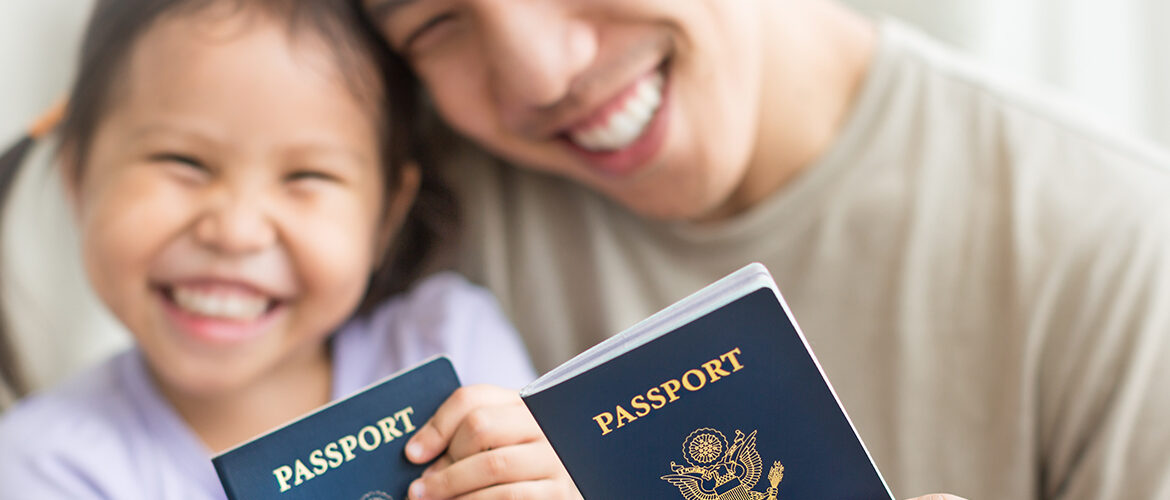In the era of globalization, a second passport for wealthy individuals has become a necessary commodity for many purposes – it creates an opportunity to diversify the investment portfolio and expand business globally; eases international travel by allowing visa-free access to many destinations; gives a peace of mind by securing some kind of insurance policy for the whole family in case of turmoil, so-called ‘Plan B.’
More than ten countries across the world offer a quick and straightforward path to acquire economic citizenship and, therefore, a second passport for high-net-worth (HNW) individuals and their families. They are running citizenship by investment programs with clear guidelines and regulations. In exchange for non-refundable contribution or investment, these countries grant citizenship and, therefore, second passports to foreign investors and their family members.
The first such program was launched by the Caribbean nation of St Kitts and Nevis back in 1984, and it is still operational. Currently, there are five jurisdictions (St. Kitts and Nevis, Commonwealth of Dominica, Grenada, Antigua and Barbuda, and St Lucia) in the Caribbean with citizenship by investment programs. Due to relatively inexpensive cost, where the minimum investment layout starts from USD 100,000, Caribbean citizenship by investment programs are very popular among the rich people from countries with weak passports.
The island nation of Vanuatu from Oceania is actively competing with Caribbean states, as a minimum investment requirement for its two citizenship by investment programs is also relatedly low and starts from USD 130,000.
Probably the most expensive citizenship by investment scheme is Austria, which requires a significant investment (generally around EUR 20 million) in order to qualify for citizenship. In the European Union (EU), two more member-states – Malta and Bulgaria and two candidates states to join the EU – Montenegro and North Macedonia maintain such programs.
The recent leader in the investment migration industry is Turkey, which has granted citizenship to around 30,000 foreigners through its citizenship by investment program. Turkish program’s popularity derives from the relatively low investment threshold (USD 250,000) and the possibility of investment in a real estate(s).
Other less popular citizenship by investment schemes is operated by Jordan, Egypt, and Cambodia.
But why do thousands of people apply for such programs? What are the benefits of acquiring a second passport? According to the report by Knight Frank, two out of three HNW individuals have already obtained second passports, while others are considering one. Below you can find the 10 main advantages of citizenship by investment programs.
Enhancing International Mobility
Passports of countries with popular economic citizenship programs allow visa-free access to the overwhelming majority of jurisdictions across the globe. The possibility of visa-free travel has been always alluring for Asian and African high-net-worth individuals, as obtaining visas is always time-consuming and full of hassles.
Insurance Policy
Persons with a second passport can opt to easily leave their home countries in a turbulent time. Civil unrest, political, economic, or social turmoil have always been used to fuel the demand for alternative residency and citizenship programs. For many, it is crucial to have a backup plan, and a second passport can be a sort of insurance policy against offensive new regulations or political instability.
Opportunities for the Whole Family
All citizenship by investment programs allow investors to include their family members in the citizenship application as dependents; thus, applying to such programs is not the individual move but rather an action that avails all family members. Furthermore, citizenship acquired through such schemes can be inherited by future generations. Hence, acquiring a second passport is a long-term investment, benefiting investors’ successors in the future.
No Need of Actual Relocation
Citizenship by investment programs, commonly, do not oblige them to physically reside in the country they have chosen. Moreover, some countries, like Caribbean ones, even do not compel applicants to travel there in order to accomplish the application process. With the help of Authorized intermediary Agents, which are government-appointed legal entities, they can get a second passport anywhere they like.
Spreading Risks Beyond One Jurisdiction
Spreading the political, economic, or social risks beyond one jurisdiction is the best way to mitigate possible challenges.
Investment Options
Generally, those who seek to obtain a second passport are free to choose the country where they would like to apply and select one of the investment options according to their preferences. In the case of a non-refundable contribution, the investment threshold is about two times less than a requirement for a real estate investment. Financing business and creating jobs, in addition to investing in bonds and securities, can also qualify for citizenship in certain countries.
Access to Social Goods
Economic citizens enjoy the same rights as ordinary citizens and take advantage of the social services of their new home countries. This can include better healthcare services, advanced educational opportunities for children, access to flexible pension systems, etc.
Expanding Business Opportunities
Obtaining a second passport through citizenship by investment programs gives access to new markets and opens new business opportunities. Economic citizens have the right to start entrepreneurship abroad, establish a company, open bank accounts and perform international transactions. By enrolling in such programs, investors getting internationalization options for their assets and access to income that might be limited in their homelands.
Safe Banking and More Privacy
People with a second passport have easier access to global banking services. Banks in countries with citizenship by investment programs have proven their security and accessibility. If HNW individuals doubtlessly think that depositing money into a bank in their home countries is not safe, then obtaining a second passport is a solution, which expands investment opportunities by accessing offshore banking.
Reducing Tax Burden
People are prone to have an optimal tax strategy and decrease their fiscal burden. Obtaining a second passport creates an exit strategy if one’s home country tightens its tax regulations. A second passport creates grounds to live in a tax-optimized country. Nowadays, many developed countries that use residential taxation have considered making it more difficult for their citizens to become tax non-residents. If one makes a smart investment, let’s say in the Caribbean, then they can benefit from favorable tax systems, with no capital gains, inheritance, and net worth taxes.
Guaranteed Alternative Residency
In case of any kind of turmoil in their home countries, second passport holders will not go abroad as refugees. By obtaining economic citizenship overseas, they are making sure to have another place to call ‘homeland,’ where they will legally reside, live and work. People who have obtained economic citizenship overseas can always keep an option to relocate to their second homes anytime they like.

